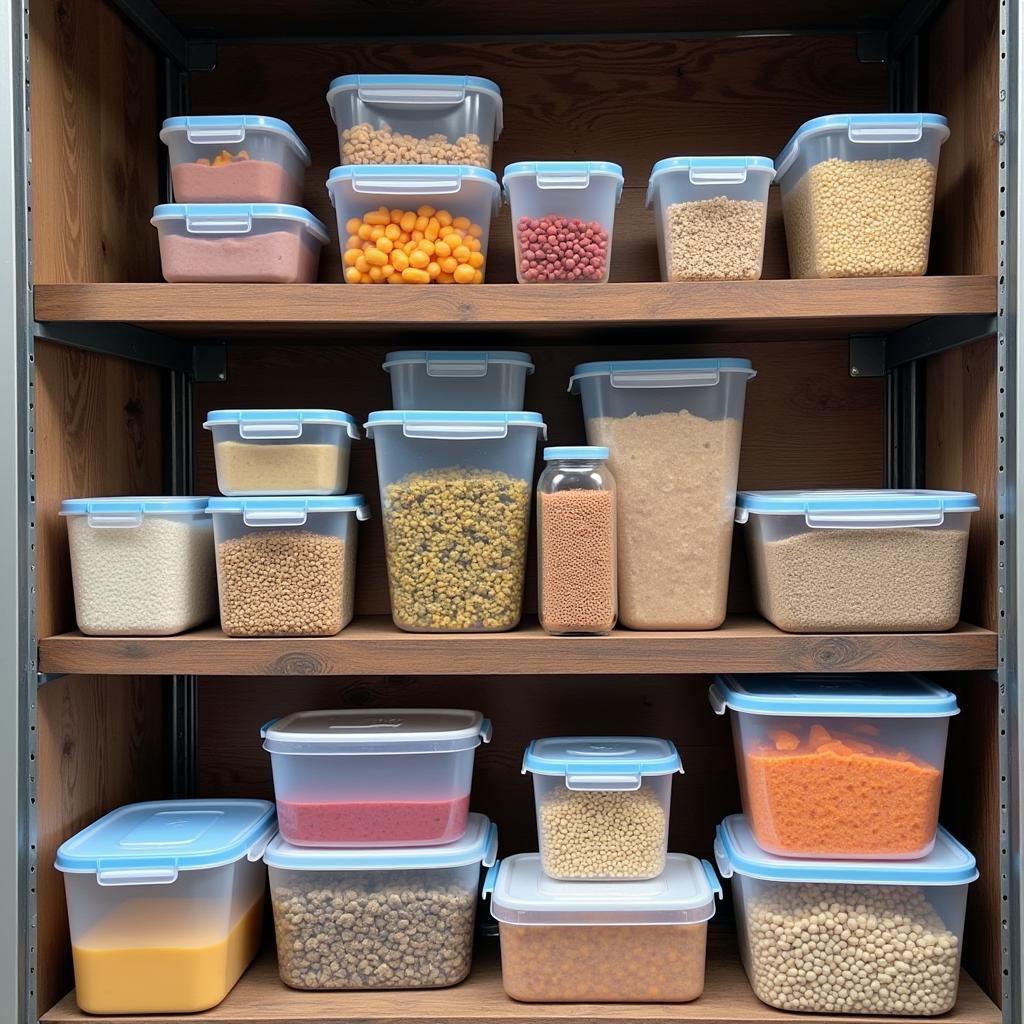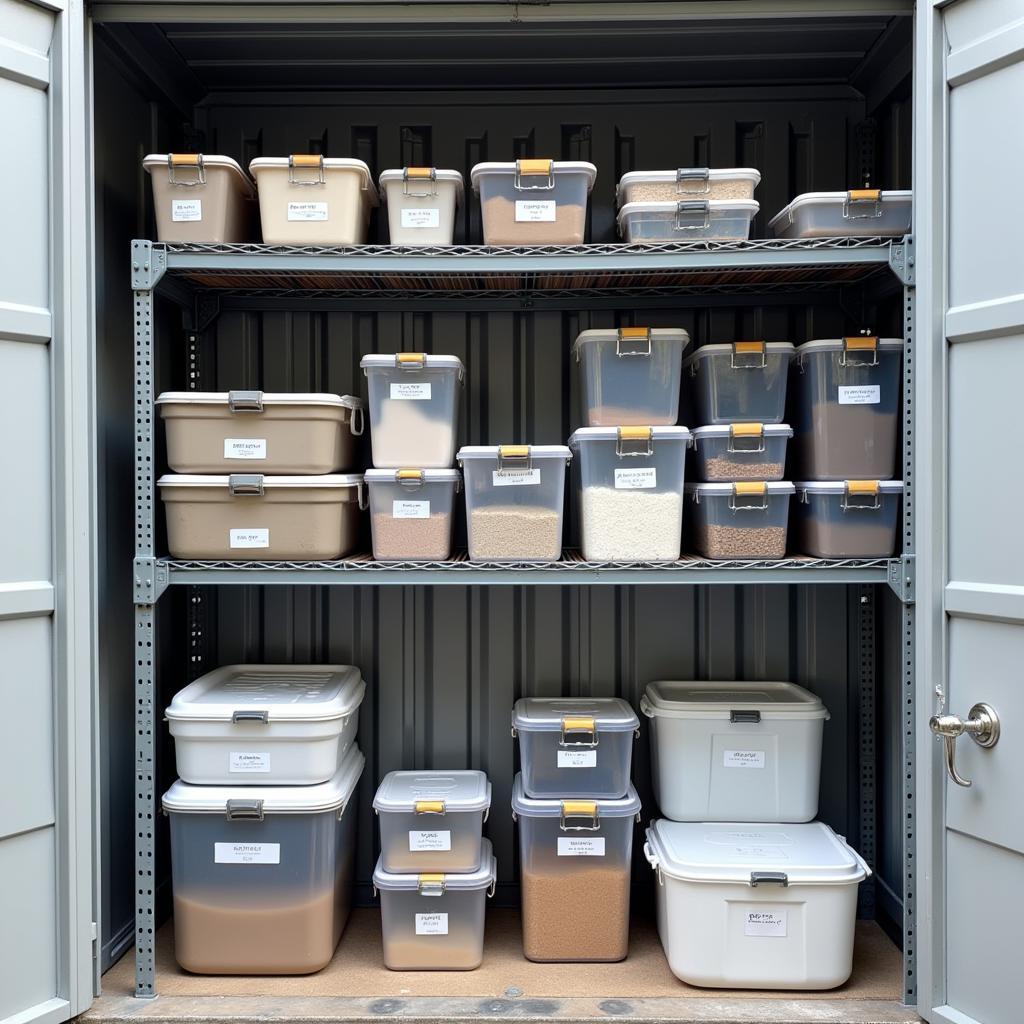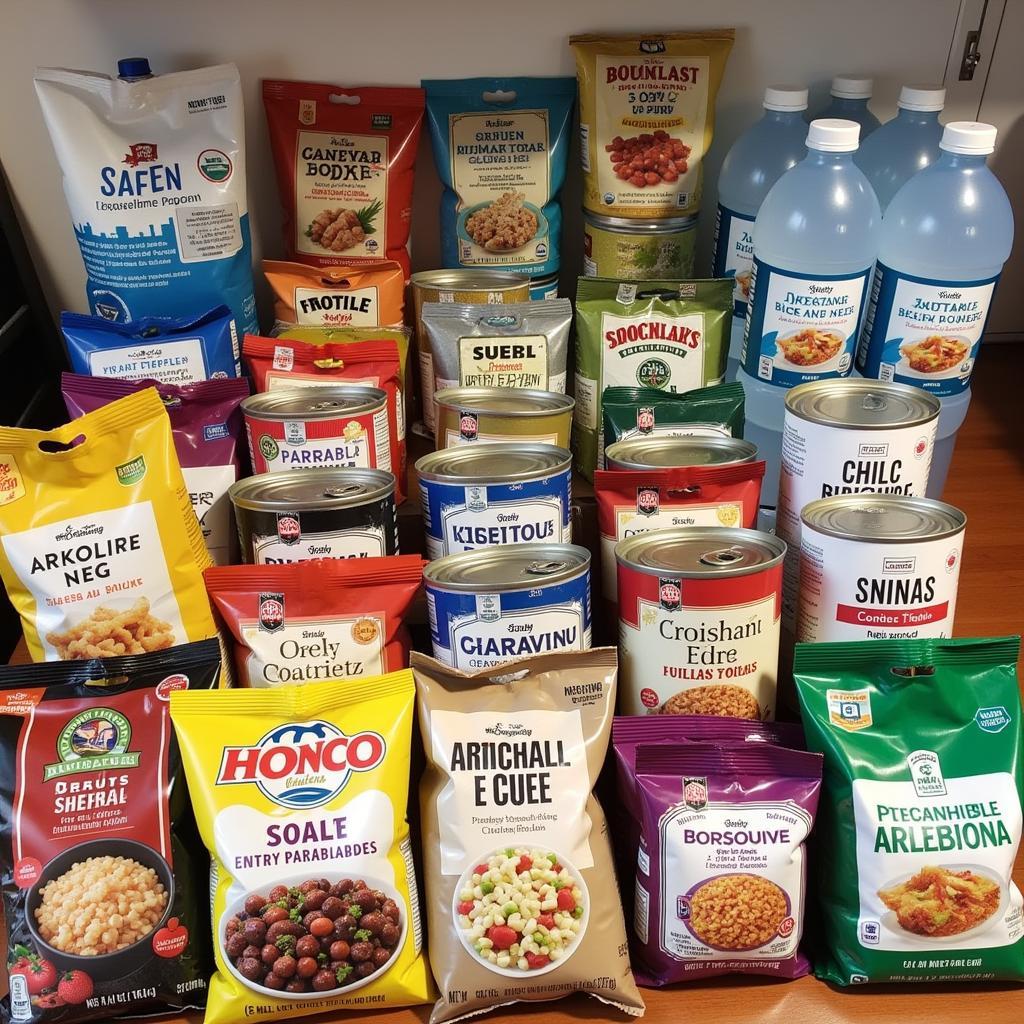Storing food in a storage unit might seem like a convenient solution for extra pantry items or long-term food supplies. However, it’s crucial to understand the potential risks and take necessary precautions to ensure food safety and quality.
While the idea of having a dedicated space to store food can be appealing, several factors can affect the viability and safety of storing food in a storage unit.
Factors to Consider Before Storing Food in a Storage Unit
Before you start filling up a storage unit with your pantry staples, consider these important factors:
- Climate Control: Temperature fluctuations can negatively impact the quality and safety of your food. Consider investing in a climate-controlled storage unit to protect your food from extreme heat, cold, and humidity.
- Pests: Storage units, even climate-controlled ones, are not immune to pests. Rodents and insects can find their way into even the most secure facilities, putting your stored food at risk.
- Food Spoilage: Different foods have varying shelf lives. Storing perishable items like fresh produce, meat, and dairy in a storage unit is strongly discouraged, as they can spoil quickly and pose health hazards.
- Storage Unit Policies: Some storage facilities have specific restrictions regarding food storage. Review the terms and conditions or consult with the facility management to ensure compliance.
 Food Storage Containers in a Storage Unit
Food Storage Containers in a Storage Unit
Best Practices for Storing Food in a Storage Unit
If you decide that storing food in a storage unit is your best option, follow these best practices to maximize food safety and quality:
- Choose the Right Storage Unit: Opt for a climate-controlled unit to minimize temperature fluctuations and reduce the risk of spoilage. Look for a unit on a higher level to avoid potential flooding or water damage.
- Invest in Airtight Containers: Transfer all food items, especially dry goods like grains, pasta, and beans, into airtight containers. This will help prevent moisture absorption, pest infestation, and flavor transfer.
- Use Desiccant Packs: Place desiccant packs inside the storage containers to absorb excess moisture and maintain dryness. This is particularly important for items susceptible to moisture damage, such as spices, herbs, and powdered milk.
- Label and Date Everything: Clearly label all containers with the contents and storage date. This will help you keep track of your inventory and use items before they expire.
- Practice First In, First Out: Rotate your food stock regularly, using older items before they expire. This practice ensures that you’re consuming food at its peak freshness and minimizing waste.
 Organized Food Storage in a Storage Unit
Organized Food Storage in a Storage Unit
Foods Suitable for Storage Unit Storage
While it’s generally not recommended to store perishable foods in a storage unit, some food items are more suitable for this type of storage than others:
- Dry Goods: Dried beans, lentils, rice, pasta, oats, flour, sugar, and spices can be stored safely in a storage unit for extended periods when stored properly in airtight containers.
- Canned Goods: Canned fruits, vegetables, soups, and beans have a long shelf life and can withstand temperature fluctuations better than other types of food. However, it’s essential to check for dents or damage to the cans before storage.
- Bottled Water: Storing bottled water in a storage unit can be a good idea for emergency preparedness or long-term water supply.
- Freeze-Dried Foods: Freeze-dried meals and ingredients have a long shelf life and are ideal for emergency food supplies. They require minimal preparation and can be stored at room temperature.
 Emergency Food Supply in a Storage Unit
Emergency Food Supply in a Storage Unit
Conclusion
Storing food in a storage unit requires careful consideration and planning. While it can be a viable option for certain food items, it’s crucial to prioritize food safety by selecting the right storage unit, using appropriate containers, and following recommended food storage practices. Remember to check your stored food regularly for signs of spoilage and rotate your stock using the first in, first out method. By taking these precautions, you can maximize the shelf life of your food and ensure its safety for consumption. If you’re unsure about storing specific food items, it’s always best to err on the side of caution and consult with food safety guidelines or seek advice from a food storage expert.
For additional information on food storage and safety, check out our resources on 5 Year Food Supply and Mother Earth Food.
FAQs
Can I store meat in a storage unit?
Storing meat in a regular storage unit is highly discouraged due to the lack of temperature control, which can lead to rapid spoilage and potential health risks.
How often should I check my stored food?
It’s recommended to inspect your stored food at least once a month for signs of spoilage, such as changes in color, texture, or odor.
What should I do if I find pests in my storage unit?
If you discover pests in your storage unit, contact the storage facility management immediately for professional pest control assistance.
Can I store opened food packages in a storage unit?
It’s best to transfer opened food packages into airtight containers to prevent moisture absorption, pest infestation, and flavor transfer.
Are there any alternatives to storing food in a storage unit?
Alternatives to storage unit food storage include basements, pantries, and dedicated food storage cabinets in cool, dry, and well-ventilated areas of your home.
If you need further assistance or have any questions about food storage, please contact us at 02437655121, email us at [email protected], or visit us at 3PGH+8R9, ĐT70A, thôn Trung, Bắc Từ Liêm, Hà Nội, Việt Nam. Our customer support team is available 24/7 to assist you. You can also find helpful information on our website, including articles on Food Hutch and Berks Food Safety Inspections. Consider exploring these resources for more insights and guidance on food storage.